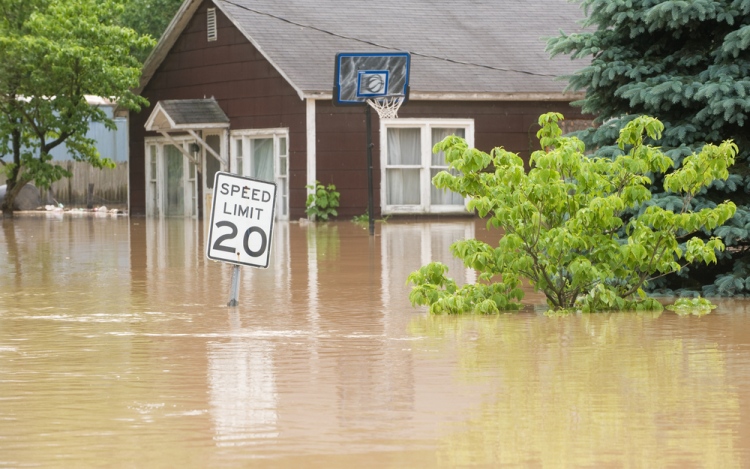There’s no way to predict when a broken water heater or sudden storm may cause damage to your home. However, it’s a mistake to think that just because it ‘wasn’t that bad’ or the water has dried-up that you don’t need water restoration service. The fact is, unless catastrophic flooding is involved, a lot of the damage from water happens in the aftermath; much of it may not even be visible until it’s too late.
Problems With Mold, Mildew and Bugs
Moisture is mold and mildew’s favorite habitat, and even mild flooding can create an atmosphere where they can flourish. In fact, mold begins to set in within 24 – 48 hours after a flood. The growth itself can cause deterioration of drywall, wood and concrete, and the spores that form after can cause severe health problems. Once you have mold and mildew in your home, you’ll need to shell out money for a remediation specialist as well as to cover the cost of replacing carpets and rotted infrastructure. Insects like mosquitoes love water. They love it so much, they may decide to lay eggs and raise little mosquitoes if the habitat remains favorable.
Structural Damage
Some structural damage, like warped flooring or drywall, is visible. But there is some damage that may not become apparent for months or even years. Water can seep into cracks in concrete or brick and erode not only the material itself, but the cement that holds it together. This causes expansion during cold weather, leaving foundations and brick walls weak and vulnerable. Rotting wood floors create a place for mold and mildew to grow, and they can become unstable and dangerous for people who walk on them.
Flood water can also cause problems with your pipes, believe it or not. Although pipes are meant to carry water, it is usually clean, treated water. Water from flooding can contain chemicals and toxic substances that damage your pipes from the inside. They can also cause contamination in the water supply to your home.
Financial Problems
The cost of untreated water damage extends beyond the cost of cleaning up the initial problem. If you don’t report water damage right away, it may not be covered by your insurance company; you may also have to go out of pocket if the damage is due to neglect or lack of maintenance, like when you have a minor leak that causes erosion inside the walls of your home but neglect to fix it until you have a major problem.
You also run the risk of paying for unnecessary repairs that could have been avoided if you had treated the initial water damage. That includes the cost of replacing rotted building materials, mold remediation and repairing cracked foundations. Water damage can also lower the value of your home. You may think that you can cover the problem with a coat of paint, but a professional home inspector will know where to look for signs of water damage that a non-professional wouldn’t notice.
It’s important to note that not all water damage is equal in the eyes of insurance companies. Many policies differentiate between water damage from broken pipes and flooding from a natural disaster. Make sure the read your policy carefully before it becomes necessary to make a claim so you can purchase any supplemental insurance you need. You should also inform your insurance company about the cause of current water damage to avoid problems when you call to make a claim.




